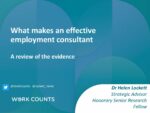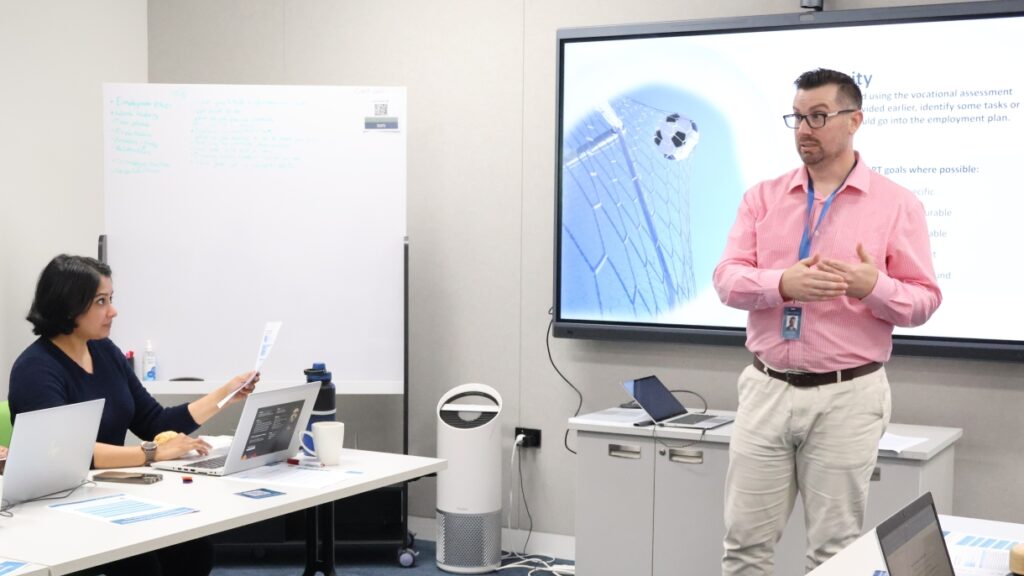Webinar: What makes an effective employment consultant

Play video
Library type:
Keywords:
Employment consultants have a central role in providing personalised employment support to help people return to employment. But what makes a high-performing employment consultant? Work Counts strategic advisor Dr Helen Lockett posed this question to webinar attendees, before providing an overview of the findings from her review of the literature.
A review of the evidence
Helen’s doctoral thesis investigated the factors which are most likely to further improve the performance of individual placement and support (IPS) employment support programmes, once good fidelity to evidence-based practices is obtained.
In the webinar (held in September 2020), Helen explained that if IPS employment support programmes are reaching good fidelity, it is likely that the employment consultant team has a good skill level. After all, fidelity items 12-25 specifically focus on the work that the employment consultant undertakes.
At the same time, adherence to fidelity ensures a service structure that enables employment consultants to provide a personalised, intensive employment support programme, such as low caseloads and a dedicated focus on employment activities.
Yet, why is it that some employment consultants consistently achieve good results within the same IPS employment programme?
The role of employment consultants
Employment consultants:
- work on a one-to-one basis with programme participants to plan the job start or return to employment, based on participants’ preferences, skills and interests
- coordinate support with other stakeholders providing non-employment services around the person’s employment aspirations
- provide ongoing advice, general problem-solving and practical assistance to support a person to maintain employment, return to work or transfer to another job
- work with whānau, local businesses and other members of the community to help people get and keep jobs
- work directly with employers to identify suitable jobs, arrange job starts, provide onsite coaching or training (these activities involve supporting employers as well as job seekers/employees).
Distinguishing behaviours of higher-performing employment consultants
Helen covered how to go beyond basic competencies and develop employment consultant expertise. Helen’s targeted review of the literature found that higher-performing employment consultants tend to:
- establish a working alliance with everyone on their caseload
- secure jobs that align with the desires and preferences of participants
- develop participants’ job search skills
- provide employment assistance in the workplace and support employers
- develop a network of employers
- build effective working relationships with a range of stakeholders
- put in extra effort to understand and address each participant’s employment assistance needs and any related barriers
- effectively manage a caseload of participants.
Acknowledgements
In her presentation, Helen acknowledged her PhD supervisors, Geoff Waghorn and Rob Kydd, both of whom provided valuable insights and their expertise to this literature review. Helen also thanked the many participants who were involved in the research.
This knowledge is crucial to enable us to improve the support we offer to people to gain and maintain employment.
Further information
Click on the video to view an extract of the webinar recording.
Download Dr Helen Lockett’s presentation slides, below.



